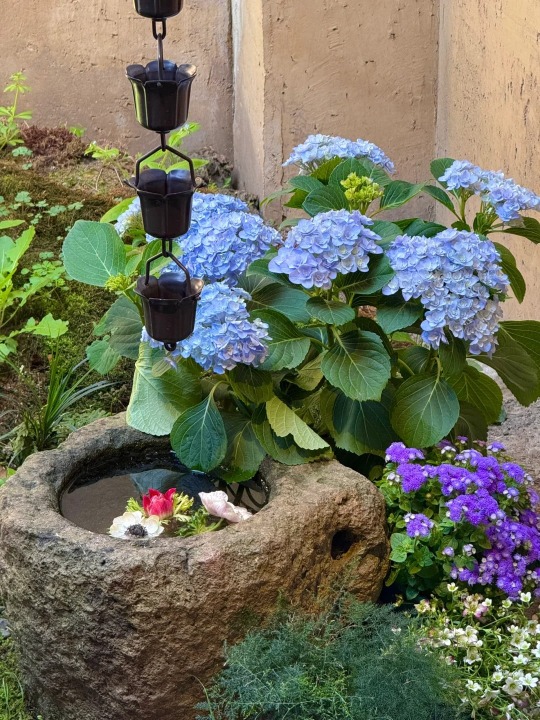Brazil | 40 | she/her ~ Native speaker of Portuguese, fluent in English, gets by in Spanish, French and Esperanto, learning Mandarin Chinese ~ This is a langblr, could you guess?
Don't wanna be here? Send us removal request.
Text
Film Rec: 看我今天怎麼說 | The Way We Talk (2025)
On the topic of new Hong Kong movies, I want to shout from the rooftops about The Way We Talk, which will be releasing in theatres in Canada on July 25, 2025 and in the US on August 1, 2025. (It's also recently wound up theatre runs in Australia and the UK.)


TWWT is the latest work from director Adam Wong Sau-ping (after The Way We Keep Dancing in 2020). Without explaining too much plot-wise, the film focuses on several young Deaf Hongkongers attempting to find a middle ground with one another, when their backgrounds have each shaped their lives and identities as Deaf people in different ways. Starring Neo Yau, Chung Suet-ying, and Marco Ng, it's a look at and celebration of Hong Kong's Deaf culture and Hong Kong Sign Language, highlighting the diversity of Deaf experiences and pointing out systemic issues faced by Hongkonger Deaf communities which still have yet to be addressed. More generally, the film is also an incredible, nuanced look at how multilingualism and disability play into formation of one's identity, and how different individuals navigate those things.
Beyond the story itself, this film has multiple standout aspects. The acting from all three leads is phenomenal, and in my opinion TWWT should be considered a representative work in all their careers (special shoutout to Marco Ng, who'd never acted before this film but easily held his own with the other, more experienced leads). The sound design is beautifully done and immersive, to the point that I wouldn't recommend you bring popcorn or crunchy snacks into the theatre for this— it'll take you or others around you out of the film. And bouncing off of sound, the ways in which signed and spoken language are utilized (alongside subtitles or deliberate lack of them) together add new layers to the storytelling, and make the film almost interactive with the audience at times. I was lucky enough to watch TWWT twice in theatres when I flew back to Hong Kong in May, and I wholeheartedly consider it to be the best film I've watched this year.
TWWT was first released in Hong Kong theatres in February 2025. The acclaim it's received since has notably included Best Lead Actor and Best Lead Actress nominations for Neo Yau and Chung Suet at the Golden Horse Awards (with the latter winning her category), and nominations for Best Film, Best Director (Adam Wong), Best Lead Actor, Best Lead Actress, Best New Performer (Marco Ng), and Best Sound Design at this year's Hong Kong Film Awards. If you have even the slightest interest or curiosity in this film, I encourage you to go watch it and give it a chance. Here's a couple trailers below to help make up your mind:
youtube
youtube
#reblog#movies#movie rec#看我今天怎麼說#the way we talk#hong kong films#chinese language#langblr#chinese langblr#deaf
50 notes
·
View notes
Text

#journaling#journaling prompts#journaling in chinese#chinese language#langblr#chinese langblr#mandarin#中文#日记本
7 notes
·
View notes
Video
If you ever ask why almost all Chinese period dramas are dubbed, this is why. They are speaking two entirely different dialects here: Charmaine Sheh (in white) is from Hong Kong so she speaks Cantonese but her scene partner, Dai Chun Rong speaks Mandarin. Charmaine speaks Mandarin too but not to the same level as her Cantonese and she would definitely speak it with a Hong Kong accent. She starts her lines in Mandarin then switches to Cantonese in the middle before ending her sentence in Mandarin to cue her scene partner, but for the most part, they do the entire scene in two mutually unintelligible dialects, knowing that Charmaine will be dubbed over later. You can kind of tell when watching the finished episode by looking at Charmaine’s lip movements that she was speaking Cantonese and not Mandarin.
Ada Choi did this for her role as Empress in Legend of Zhen Huan too, and if you have ever heard Ada (try to) speak Mandarin you’d be very relieved she was dubbed :D I think Charmaine’s Mandarin is probably better than Ada’s.
There was a wave in the mid-2000s when there were a lot of collaborative dramas between China with Korean actors. An example is Jang Nara playing the female lead in Mischievous Princess or Chae Rim in Love of the Aegan Sea. The Korean actors usually don’t speak Mandarin that well so they would shoot the drama speaking Korean and later is dubbed in Mandarin. It makes for interesing watching because it’s so obvious that their mouths are moving completely differently than the sounds they are making. If you watch both Korean and Chinese dramas and can sort of distiguish the lip movements of the two, watching a drama like Mischievous Princess hilarious because you will read Korean words from Jang Nara’s lips but hear Mandarin.
1K notes
·
View notes
Text

幸福 (xìngfú): happiness
洋溢 (yángyì): be permeated with; brimming with
时刻 (shíkè): point in time; hour; moment
#journaling#journaling prompts#journaling in chinese#chinese language#langblr#chinese langblr#mandarin#中文#日记本
9 notes
·
View notes
Text
OP: popurlar northeast snake spirit and her fans
965 notes
·
View notes
Text
Translation request for @ivykhuyen
Original video on Bilibili. English added by me 🍥
--
🇵🇸 Donate to Medical Campaign x Sameer Project!
https://chuffed.org/project/136892
I am currently taking Chinese to English video translation requests if you donate to Palestinians in need.
69 notes
·
View notes
Text



Shaxi 沙溪 is a historic market town in Jianchuan county, Yunnan province, China.
Shaxi started as a trading point for tea and horses along the ancient Tea Horse Road (also known as the South Silk Road) during the Tang dynasty (618–907). The prosperity of the town was at its height during the Ming and Qing dynasties (1368–1912).



It is probably the most intact horse caravan town on the ancient tea route leading from Yunnan into Burma and Tibet, and is now being preserved through a cooperation between the Swiss Federal Institute of Technology Zürich (ETH) and the People's Government of Jianchuan County.
Nearby Shibao mountain contains Buddhist rock carvings and temples of over 1300 years old.



330 notes
·
View notes
Text

表扬 (biǎoyáng): to praise
#journaling#journaling prompts#journaling in chinese#chinese language#langblr#chinese langblr#mandarin#中文#日记本
8 notes
·
View notes
Text

心中有佛 怕你碌柒
My Cantonese speaking friend informs me 怕你碌柒 means something like "nothing fucking scares me"
57 notes
·
View notes
Note
Is it possible to “beat” mental illness? Or does it depend on type/circumstance?
“Beating” mental illness is actually the norm, not the exception. Most people who have a major depressive episode never have another one. 80% of people who survive their first suicide attempt never make a second attempt. 93% of Borderline Personality Disorder patients achieve remission. Up to 74% of people with Obsessive-Compulsive Disorder achieve significant clinical improvement in their symptoms, and 20% achieve full remission. Half of Generalized Anxiety Disorder patients achieve remission after the acute phase of treatment. Even disorders with relatively low rates of remission - bipolar disorder, schizophrenia, schizoid personality disorder - generally become milder and easier to manage as you age. Psychiatric symptoms tend to peak in your 20s and generally drop off as you get older, especially if you seek treatment.
This is why the narratives we use to talk about mental illness matter so much. Right now, the dominant narrative is that mental illness is “an imbalance in the brain” and that it’s largely something that people are born with. There are upsides and downsides to this. The upside is that it promotes the idea that mental illness is not the ill person’s fault, and it helps us understand that mental illness can impact anyone, regardless of their life circumstances. The downside, however, is that it’s sort of given us this idea that mental illness is inborn and unchangeable. People have taken on the idea that “that’s just how my brain is”, when the reality is that, for most people, mental illness is less of a stable trait for them, and more of just a shitty thing that they are going through for a little while. The idea that mental illness is just “in your brain” also erases the very real connection between your life circumstances and your mental health - while it’s very true that a wealthy person in a happy marriage can become depressed, it’s also very true that living in poor conditions and being in an abusive marriage can be the cause of depression, and that improving your life circumstances can lessen or eliminate mental health conditions.
If you have a mental health condition, it’s very important that you not resign yourself to the idea that you’re going to be like this forever. Chances are, you won’t. Even if you have a mental health condition that is associated with low rates of remission, it is possible to make leaps and bounds in your functioning, and to get to a point where managing your condition becomes second nature to you. Our understanding of mental illness is improving every year, and new therapies and treatments are becoming available all the time. If you seek treatment and do your best to manage your condition, you have every reason to believe that you will make huge improvements.
Hope this answers your question!
55K notes
·
View notes
Text

隔壁 (gébì): next door
#journaling#journaling prompts#journaling in chinese#chinese language#langblr#chinese langblr#mandarin#中文#日记本
6 notes
·
View notes
Text














shaoxing, zhejiang province, china
2K notes
·
View notes
Text
So I started watching this show called Legends 招摇 and I’d like to debut my new favorite discourse reaction gif:

This is a public domain gif! you have my permission to use it as a reaction to other posts.
30K notes
·
View notes
Text

#august#journaling#journaling prompts#journaling in chinese#chinese language#langblr#chinese langblr#mandarin#中文#日记本
8 notes
·
View notes
Text
Related to yesterday's topic of 'don't get scammed.' If you're a beginner, go to a library (college - elibrary or in-person, or local, or online app like Hoopla and Libby, or library site like archive.org) and look at the Language Learning Resources that are there.
They are likely to be:
Free (since in a library)
Structured Resources (so you'll have a decent chance of learning the basics in a guided way, they will guide you through grammar and new vocabulary, pronunciation, the writing system, listening, reading, and speaking/writing with their exercises and/or a little creativity on your part).
You can get an idea of what quality resources exist to study the language you're learning, what kind of information you'll need to learn, and the most common ways that information is taught. So if you DO want to go find a resource that costs money, you have an idea of the resources you want and why.
Maybe you want to hire a tutor, because you saw the library textbooks and they can't provide you live practice chatting with another person. Maybe you want to pay for Graded Readers in Pleco app for Chinese, because the graded readers in the library did not have audio included and did not define Every word you found confusing. Maybe you saw a kanji reference book, but it did not include mnemonic stories, and you Know mnemonic stories help you remember information, and there's a book that costs $20 dollars that appears to include mnemonics for every kanji so you're eager to try it. Maybe you really liked Pimsleur in the library, but you ran out of check out time for it, and you know you want to keep working through the Pimsleur materials, so you decide to buy it. Those are all reasonable reasons to spend money on learning resources, that did not pressure you or confuse you as a beginner by trying to prey on you 'not knowing what you needed or how much.' Which a lot of online websites and videos targeted at beginner language learners are trying to do, convince you to spend a lot of money quick on something that may or may not even be useful to you.
53 notes
·
View notes
Text
I’ve been studying Chinese a little and as a result have developed passionate relationship with certain written characters. Some of those relationships are intensely fond. Some of the characters, were they to gain a corporeal form, I would attack them on sight if I saw them walking up the street
#...or Portugal,or the Portuguese language...#reblog#chinese language#langblr#chinese langblr#mandarin#中文
433 notes
·
View notes
Text

气温 (qìwēn): (air) temperature
#journaling#journaling prompts#journaling in chinese#chinese language#langblr#chinese langblr#mandarin#中文#日记本
8 notes
·
View notes